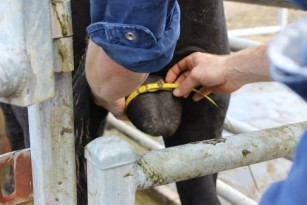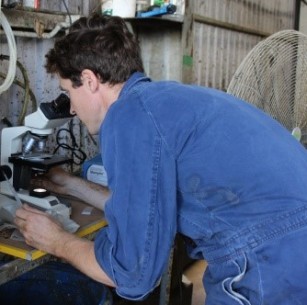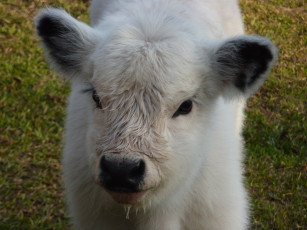It's not just what we know... it's how much we care!
Bull Soundness Examination & Bull Testing
At Wingham and Valley Vets we offer the service of Bull Breeding Soundness Examinations (BBSE) to producers and studs by experienced veterinarians.
We recommend producers have their bulls tested prior to sale or purchase and/or prior to joining with the herd each year. A recent study published by the Australian Cattle Vets which assessed the fertility of 221 bulls found that 110 bulls or 49.8% were at risk of being sub-fertile. In the same study, almost half of the bulls considered to be sub-fertile actually failed the examination and were considered to be unsuitable for use in that joining period.
The BBSE was developed to standardize bull fertility testing and to provide a consistent measure of bull fertility. The evaluation requires a bull to meet a set of standards for key fertility components, which indicate whether a bull has a high probability of being fertile.
The Australian Association of Cattle Veterinarians advise that for a bull to be considered ‘fertile’ he should be able to achieve, by natural service, a pregnancy rate of 60% and 90% in 50 normally cycling females, within three and nine weeks of mating, respectively.
The five components of bull fertility in the BBSE are:
- Scrotum – Scrotal circumference and testicular palpation. The normal ranges depend on breed and age of the bull.
- General physical exam and reproductive tract examination– Assessing for evidence of any condition of the body or reproductive tract indicating sub-fertility or infertility. This examination will identify bulls which are structurally unsound in the legs, feet, penis and sheath (abnormalities that will impact on serving performance and hence fertility).
- Semen – Crush-side assessment indicates that the semen is within normal range for motility, sperm mass and percent progressively motile .
- Morphology– Semen can be submitted to a laboratory for examination using high power magnification. Evaluating morphology can reveal problems with the sperm that may impact on its ability to fertilise the egg and produce an embryo.
- Serving ability & libido – The bull is able to serve normally as demonstrated in a standard test and shows no evidence of fertility limiting defects.
SPERM MORPHOLOGY
- Morphology in a BBSE is basically the ‘structure’ of individual sperm cells. The structural attributes that require a specialised microscope to view are frequently just as important, if not more important as far as affecting a bulls fertility.
- Morphology can affect the ability of individual sperm to move within the female reproductive tract, and the ability of sperm to fertilise an egg
- If you would like the semen sent away for morphology testing, please notify the clinic when booking the bull testing appointment as the vet will need to bring special transport medium so that the semen sample is preserved for transport to the specialised laboratory.
Wingham and Valley Vets strives to improve producer profitability and productivity by promoting BBSE and also by enhancing the reproductive performance of females. We recommended that bull buyers request a complete BBSE when sourcing bulls. Producers should be aware that a bull with unknown fertility can affect herd reproductive performance and profitability well into the next decade.
If you have any questions or if you would like to arrange a BBSE on your property, please call the clinic on 655700000.


